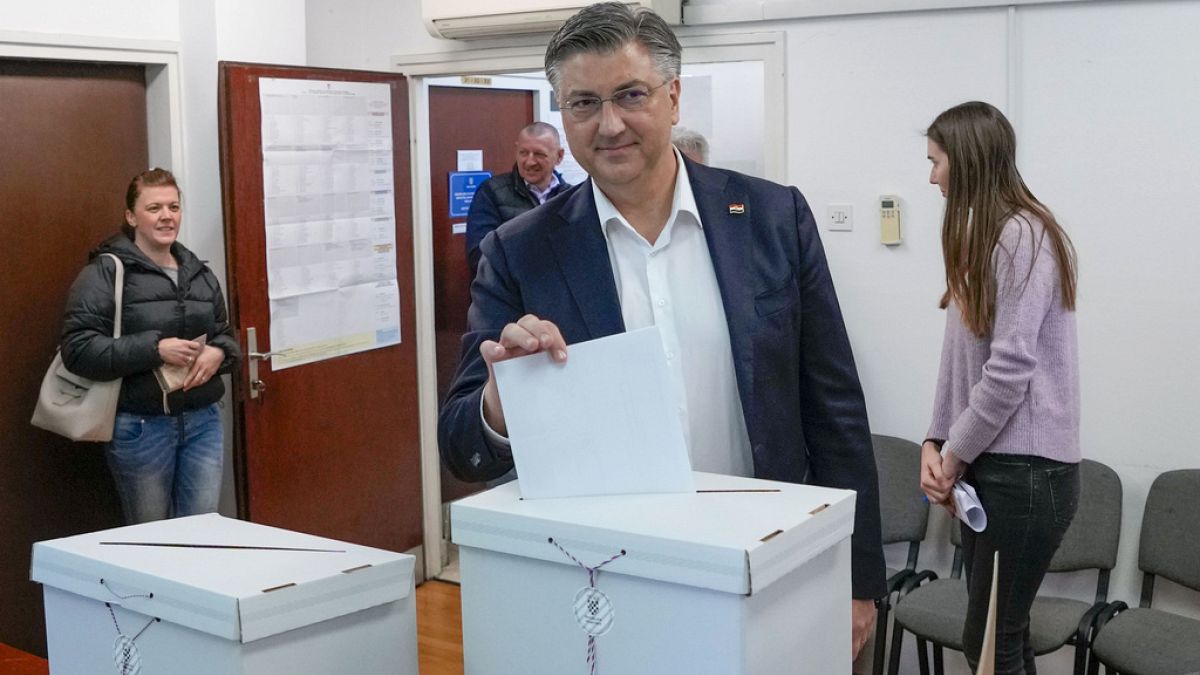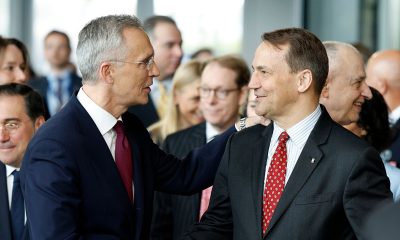General News
Croatia’s bitter election pits outgoing prime minister against current president

Croatians are going to the polls to elect a new parliament, and two rival establishment figures are fighting to come out on top.
A duel awaits the Croatian parliamentary elections this Wednesday. The conservative ruling party, the Croatian Democratic Union, faces off against the Social Democrats, backed by an alliance of centrist and left-wing parties.
In an unusual turn of events, the two front-runners are none other than the outgoing prime minister, Andrej Plenković, and the current president, Zoran Milanović.
At stake in the race for Croatia’s 151-seat parliament isn’t just the country’s domestic trajectory, but also the EU’s unity as the bloc grapples with the instability caused by Russia’s full-scale invasion of Ukraine.
If the HDZ stays in power, the country will continue on a pro-Western course in supporting Ukraine in its fight against Russia. Success for the SDP, on the other hand, could put the party on track for victory in the European Parliament election in June and the presidential election in December.
That would shake the HDZ’s long dominance of Croatian politics and potentially open up space for stronger pro-Russia influence in the country.
“Political sabotage”
Milanović is often described as a populist by his critics, and even framed as a danger to democracy by Plenković, who accused him on the campaign as “a guy who violates the constitution, who organised political sabotage against these elections and is destroying Croatia’s constitutional foundations.”
The appointment of Milanović as prime minister would be an unprecedented event in the country’s history.
After he announced his candidacy, the Croatian constitutional court ruled said that the president can’t run for prime minister, take part in the parliamentary election or campaign in favour of any party, unless he first resigns his office.
Milanović refused, openly ignoring the court and continuing to campaign in favour of the left-wing alliance.
Peđa Grbin, leader of the Milanović-allied Social Democratic Party, criticised the court’s ruling.
“If the Constitutional Court thinks there’s something contentious here, it should have reacted,” she said. “Otherwise, they’re turning Croatia into something it never was and never will be, like Belarus or other countries like that.”
According to the latest polls, the Conservative party is likely to remain in power but lose its majority. Observers point to a cut-throat campaign, and above all the absence of themes, such as the economy or security, during the debates.
“It all comes down to whether you prefer Plenković or Milanović,” observes political analyst Žarko Puhovski. “For a country, for a nation that doesn’t have much of a political culture, that doesn’t have much of a democratic tradition, this represents, in my opinion, a few more steps backwards.”
Whatever the outcome, the president will play a major role in the formation of the government, and Milanović will probably remain at the forefront of the political scene even if defeated.
The polls are open until Wednesday evening, and a result is expected on Thursday.
Source
Disclaimer: No copyright infringement intended. All rights and credits reserved to respective owner(s).
























